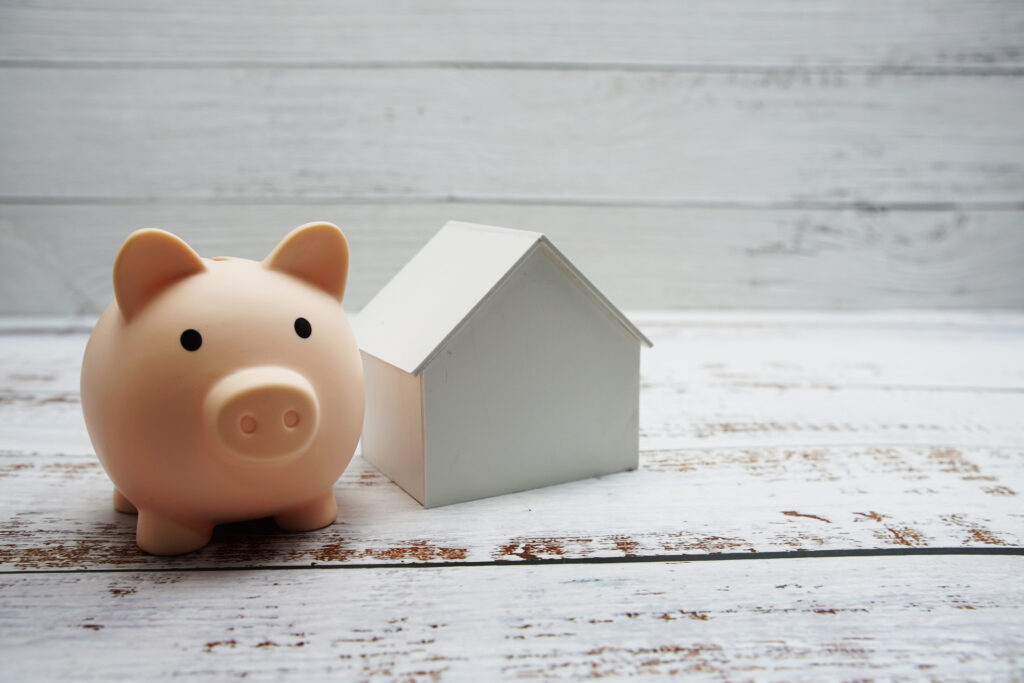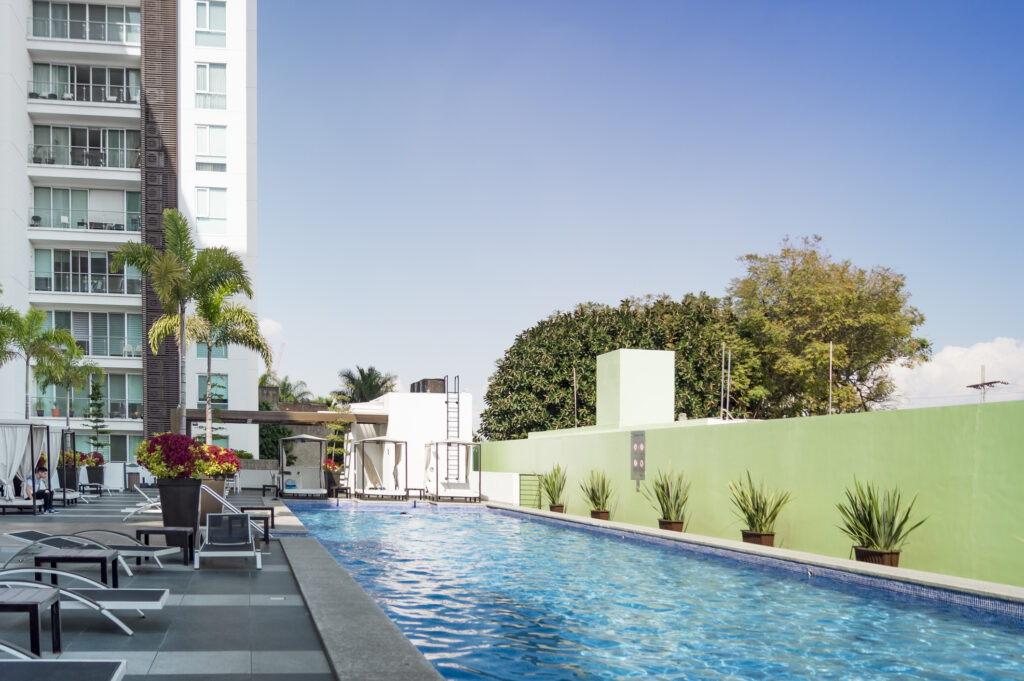When deciding on the best place to call home, the age-old question always looms: should you rent an apartment or buy a house? Typically, this debate centers strictly on financial considerations, which are undeniably important. However, we want to shift the focus to the lifestyle and overall experience that each dwelling has to offer.
While we acknowledge that financial factors are crucial, there’s much to be said for the happiness and convenience that comes with apartment living. In this post, we explore the advantages of apartment living from a lifestyle perspective, offering insights as to why it might be the perfect choice for you. Ultimately, the decision is yours to make, but understanding these benefits might just tip the scales!
Mobility and flexibility
Apartment living provides unparalleled flexibility, a stark contrast to the rigid commitments of homeownership.
You decide the duration of your stay
One of the remarkable benefits of renting an apartment is the ability to choose your lease term length. Unlike obtaining a 30-year mortgage on a home, which ties you to one location for decades, renting lets you decide how long you want to stay. This flexibility means you’re not locked into a long-term commitment and can adapt your living situation as your needs and circumstances change.
Moving on is a lot easier
To this point, renting an apartment offers valuable flexibility in the event of unexpected life changes. Many leases include options for early termination (often with a financial penalty) or subletting. This flexibility can be extremely beneficial for someone who needs to move suddenly, providing a viable exit strategy that homeownership typically doesn’t offer.
Homeowners, on the other hand, face the lengthy and uncertain process of selling their property, which can delay their ability to relocate. This level of adaptability in apartment living can be a crucial advantage when life takes unexpected turns.
According to Zillow, the average time it takes to sell a house in the U.S. is 55-70 days (including time on the market and closing period). This statistic does not take into account the average amount of time spent preparing a home to go on the market, which in the U.S. is 6 months! Do keep in mind, these averages are highly dependent on the current local market, demand, and many more factors.
Leasing versatility
Additionally, apartment living offers the option to go month-to-month after your initial lease term ends. This arrangement allows you to extend your stay on a monthly basis without committing to another long-term lease. It’s an ideal solution for those who may be uncertain about their future plans or are anticipating a move in the near future.
Month-to-month leases provide the ultimate freedom to relocate whenever you need, without the constraints of a fixed-term contract. This level of adaptability is a significant advantage over homeownership, where such immediate mobility is rarely an option.
Maintenance free livin’
It’s inevitable that appliances will break, cracks will need repairs, and pipes will require maintenance. In most apartment complexes these issues are typically covered by your landlord or property management company (dependent on your lease terms and state tenant rights).
Save yourself time
The clear advantage here is that you save valuable time by not having to handle these issues yourself. As a homeowner, you would either need to personally labor over these problems or invest time in vetting and hiring contractors to resolve them.
In contrast, apartment living relieves you of this responsibility, allowing you to focus on other priorities while the landlord or property management team promptly attends to maintenance and repairs. This convenience underscores one of the primary benefits of renting an apartment, offering a stress-free living experience where household issues are efficiently managed by professionals.
No money out of your pocket
As an apartment renter, you also benefit from avoiding additional expenses associated with maintenance, replacing appliances, and materials. The responsibility for managing and financing these necessities typically falls on the landlord or property management company, ensuring your living environment remains functional and comfortable. Apartment living protects you from the financial burden of unexpected repairs and upgrades, providing peace of mind and predictable monthly expenses.
Homeowners must budget for these costs themselves. It is generally recommended by experts to budget 1% of your home’s purchase price for yearly maintenance costs. This includes labor costs, new appliances, and materials!

Help with emergencies
Many apartment complexes offer 24/7 emergency maintenance services for urgent issues such as gas leaks, pipe bursts, heating failures, or electrical problems. This quick response can be crucial for maintaining comfort and safety within your living space. You likely can’t call your local plumber to come to your house at 4 AM!
Remember, it’s advised for tenants to review their lease agreement and understand their rights and responsibilities regarding maintenance and repairs.
Convenience
Apartment living epitomizes convenience in urban centers and highly sought-after locations. Many apartment complexes are strategically located near essential services, schools, and entertainment venues, providing residents with seamless access to their daily needs. Moreover, apartments often enjoy proximity to public transportation networks, such as bus stops or train stations, facilitating effortless commuting and city exploration.
Whether it’s a quick walk to the grocery store or a stress-free commute to work, the location advantages of apartment living cater to a dynamic lifestyle, making it an appealing choice for those prioritizing ease and accessibility.
In contrast, homeownership can present challenges in terms of convenience. Homes are typically situated in residential neighborhoods, which may translate to longer commutes to essential services, workplaces, and entertainment venues compared to apartments located in more centralized areas. Unlike apartment dwellers who often enjoy proximity to amenities within walking distance, homeowners may find themselves relying heavily on personal vehicles for daily activities.
Reduced upfront costs
Another benefit of renting an apartment is the difference in upfront costs compared to buying a house. The financial commitment required to move into an apartment is generally lower, making it more attainable for most individuals. This affordability factor distinguishes apartment living as a more feasible option for those looking to minimize initial expenses while enjoying the benefits of convenient and comfortable housing. Let’s break it down:
Buying a home
Here is a comprehensive list of typical upfront costs associated with homeownership:
- Down payment: A percentage of the home’s purchase price paid upfront to secure the mortgage loan.
- Closing costs: Various fees and charges associated with the closing of the real estate transaction, including: Loan origination fees, appraisal fee, credit report fee, attorney fees, title search and insurance, recording fees and transfer taxes.
- Home inspection: Cost of hiring a professional inspector to assess the condition of the property.
- Appraisal fee: Paid to the appraiser to determine the market value of the property.
- Homeowners insurance: Used to insure the property against damage and liability.
- Property taxes: Depending on the timing of the purchase, property taxes may be prorated and paid at closing.
- Mortgage insurance premium: Insurance to protect the lender (typically for loans with less than 20% down payment).
- Homeowners association (HOA) fees: If a property is in a managed community with shared amenities and services.
- Escrow fees: Fees for the escrow agent handling the transfer of funds and documents between the parties involved.
- Prepaid interest: Interest that accrues between the closing date and the end of the month in which the closing occurs.
- Survey fee: Cost of a survey to determine the property boundaries and features.
- Pest inspection: Fee for an inspection to check for termites and other pests.
- Utility deposits/transfers: Deposits or fees associated with transferring utility services into the new homeowner’s name.
- Moving costs: Expenses related to moving belongings from the old residence to the new home.
- Home warranty: Optional but recommended for protection against unexpected repairs to major appliances and systems.
- Miscellaneous costs: Other potential expenses such as repair costs identified during the inspection, initial furnishings, or renovations.
Actual costs may vary based on location, lender requirements, and specific circumstances. It’s important for prospective homebuyers to budget carefully and consult with a real estate professional for detailed cost estimates tailored to their situation!
Renting an apartment
Here is a comprehensive list of typical upfront costs associated with renting an apartment:
- First month’s rent: This includes base rent and additional building fees (can be prorated depending on timing of your move-in within the month).
- Security deposit: A refundable amount of money paid upfront by a tenant to a landlord or property manager, intended to cover any potential damages to the rental property beyond normal wear and tear upon move-out.
- Application fee: An apartment application fee is a non-refundable charge paid by prospective tenants to cover the cost of processing their rental application, including background checks and administrative expenses (waived in Connecticut).
- Renters insurance: A policy that provides financial protection for tenants by covering their personal belongings and liability in case of accidents or damage within their rented residence.
- Moving costs: Expenses related to moving belongings from the old residence to the new home.
Remember, these are simply upfront costs, and each circumstance is unique. We’re not comparing buying a house versus renting an apartment over an extended period to determine which builds more net worth or has less opportunity cost. Instead, this is meant to help you visualize the types of upfront costs you’ll encounter in each scenario. It’s clear that overall, apartment renting involves lower initial financial commitments, making it a more accessible option that requires less upfront savings.
Financial predictability
Renting an apartment offers a clear advantage in terms of financial predictability. Each month, tenants already know their base rent, building fees, utility costs, renters insurance premium, and personal living expenses – all of which remain fairly consistent throughout the lease term. This stability allows renters to budget effectively without the surprise of unexpected costs.
Although there is always the possibility of a rent increase at the end of the lease term, tenants can often negotiate or plan accordingly during the lease renewal process. This predictable structure provides peace of mind and helps renters maintain control over their monthly financial obligations, fostering a stable living situation.

Conversely, homeownership comes with a host of potential financial uncertainties, among them being the unpredictability of maintenance and repair costs. Homeowners may face unforeseen expenses for critical systems such as HVAC, plumbing, or roofing, which can vary significantly in both cost and frequency. Moreover, property taxes have the potential to rise due to increased property values or changes in local tax rates, thereby affecting overall monthly housing expenses. Additionally, fluctuations in interest rates can result in higher monthly mortgage payments over time, particularly for those with adjustable-rate mortgages.
These factors highlight the contrast between the stability of renting and the financial risks and responsibilities associated with owning a home. It is up to you to determine what makes the most sense for you financially!
Lower utility bills
Based on a study conducted by the U.S. Energy Information Administration, the typical yearly expenses for utilities in a U.S. home amount to roughly $3,052, whereas for an apartment, the average is around $1,491 annually. This suggests that utility costs for a home are roughly twice those for an apartment. However, actual utility expenses can vary significantly based on factors such as geographic location, energy consumption patterns, and the efficiency of the dwelling.
What impacts these costs?
Apartments are designed with efficiency in mind, featuring compact layouts and floorplans that require less energy for heating and cooling throughout the year. This strategic design helps tenants save on energy costs, unlike houses that have more space and sprawling layouts. Additionally, the shared walls between apartment units enhance insulation and energy efficiency, effectively maintaining comfortable indoor temperatures with reduced reliance on heating or cooling systems.
Many apartment complexes also incorporate sustainable building practices, such as energy-efficient lighting, high Energy Star-rated appliances, and building materials that improve insulation. These features further contribute to lower utility consumption and costs for tenants. It should be noted that houses typically have more appliances and features that consume electricity/ gas than apartments. Also, depending on when the house was built and or most recently renovated, it may not have highly energy efficient appliances.
Amenities
Apartment living offers more than just a place to reside. Most apartments provide access to a wealth of amenities that enhance daily life. Unlike homeowners who face hefty costs to install and maintain amenities like pools or fitness equipment, apartment dwellers enjoy these perks without the massive financial burden – just a monthly amenity fee!
Access to amenities at a low cost
Among the offerings are often spacious club rooms, fully-equipped fitness centers, courtyards, and pools. While these features can be incorporated into a house, the expenses often exceed many homeowner’s budgets.

Furthermore, apartment complexes can have very unique amenities such as movie theaters, on-site salons, scenic hiking trails, luxurious pet spas, and secure underground parking. These added benefits elevate the living experience without the added costs and responsibilities typically associated with owning a home.
You don’t have to maintain them
One of the significant advantages of apartment living is the absence of consistent upkeep for amenities. Unlike homeowners who bear the financial burden of installing and maintaining every amenity on their property, apartment residents enjoy the benefits without the costs or physical labor. For example, if a homeowner installs a pool, they are not only responsible for the initial installation costs but also for regular cleaning, maintenance, and potential repairs. This can involve significant time, effort, and expenses, which add up over time.
The cost of maintaining these amenities in an apartment complex is spread across all residents through monthly amenity fees, making it a more cost-effective and hassle-free arrangement.
More choices
One of the greatest benefits of renting an apartment is the array of choices available within your budget. Whether you envision yourself in a sleek, modern building with state-of-the-art amenities and contemporary finishes, or you prefer the charm of a historic building with classic architectural details, the rental market offers diverse options to suit different tastes and preferences.
In contrast, purchasing a home often requires compromises due to budget constraints. Homebuyers frequently find themselves balancing their desired style and location with what they can afford. This may mean compromising on a particular neighborhood to meet design requirements or settling for a home that requires renovations to get into a desirable area.
Additionally, the competitive nature of the housing market can limit choices, making it challenging to find a property that aligns with the desired criteria without exceeding the budget. *This is not to say that the rental market is always perfect and accommodating!*
Ultimately, renting an apartment provides more flexibility and freedom to explore different neighborhoods and architectural styles without the long-term commitment and financial constraints associated with homeownership. It gives individuals a greater chance of living in their preferred location while balancing the aesthetic they are seeking.
Safety
Living in an apartment has inherent safety benefits that are particularly appealing to a wide range of residents. Unlike standalone homes where occupants may feel isolated during emergencies, apartments provide a community-oriented environment with close proximity to neighbors. This closeness not only fosters a sense of community but also helps neighbors to quickly notice any unusual activity or respond promptly to emergencies. This is especially reassuring for single women, families with children, the elderly, and anyone seeking a secure living environment.
Additionally, many apartment complexes invest in comprehensive safety features to further ensure residents’ security. Features such as gated entrances, controlled access systems, 24/7 concierge and security cameras are common in modern apartment communities. These measures not only deter unauthorized access but also provide residents with peace of mind knowing that their surroundings are monitored. Furthermore, apartments often incorporate additional fire protection systems, such as sprinklers and fire alarms, which are crucial for ensuring safety in multi-unit dwellings.
In contrast, homeowners bear the responsibility and cost of implementing their own security measures. While some homeowners invest in home security systems, they must also cover the expenses associated with installation, maintenance, and monitoring.
Community
Apartment living can cultivate a close-knit community that may be more accessible and vibrant compared to traditional housing neighborhoods. The close proximity of apartments fosters natural interactions among neighbors, creating a sense of camaraderie and familiarity. Whether it’s bumping into each other in common areas like the fitness center or while using shared amenities, residents often find numerous chances to connect and build relationships with those living nearby.

Additionally, apartment communities often host monthly events specifically designed to engage residents and promote interaction. These events may include game nights, movie screenings, fitness classes, or themed parties, catering to diverse interests and preferences within the community.
Embracing the apartment life
The lifestyle advantages of apartment living are undeniable. Whether you prioritize flexibility, convenience, or financial predictability, renting an apartment is a practical and enjoyable choice. Embrace the freedom and comfort that apartment living offers!

